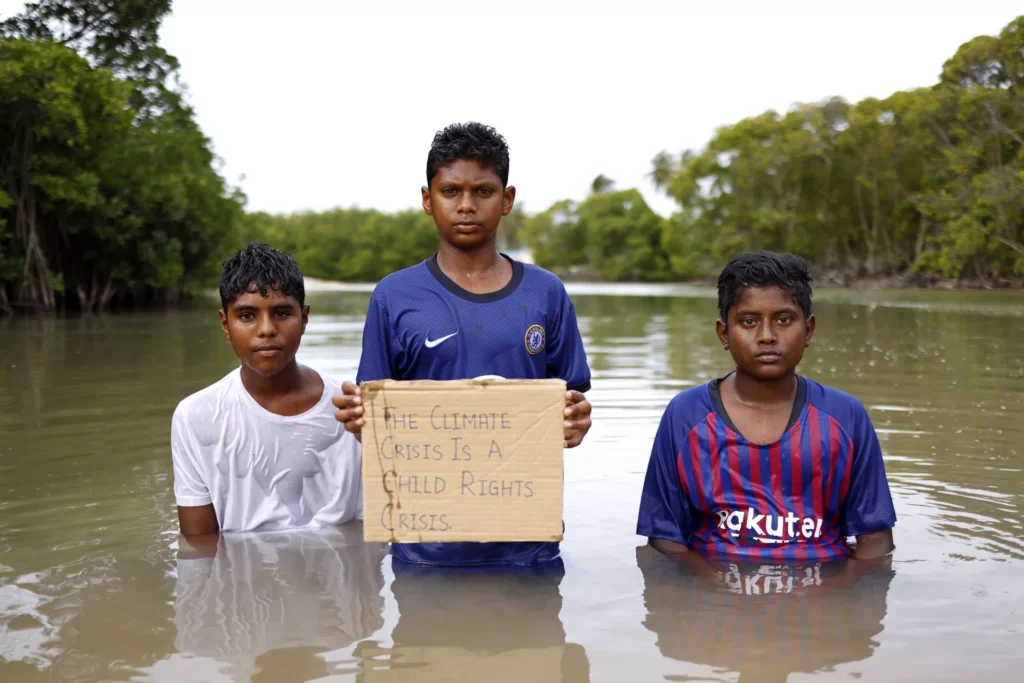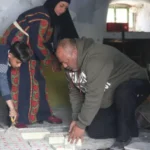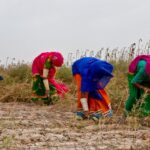
UNICEF Report: Climate change exposes children to risk in different ways. Rising temperatures and other environmental changes can make diseases more dangerous, droughts more common and can significantly impact children’s growth and development.
Almost all the world’s children are facing at least one environmental risk whether air pollution, heatwaves, floods, cyclones, disease or drought.
1. Climate change makes diseases more dangerous
Rising temperatures and other environmental changes worsen the effects of diseases on children and increase their chances of exposure.
For example, the habitat for mosquitoes transmitting malaria, dengue fever and yellow fever is projected to expand, putting new communities at risk.
In Indonesia, a shift in rainfall patterns has seen the mosquito population multiply, increasing malaria transmission throughout the community.
When kids are sick with malaria, they can’t go to school, play or take exams. Parents have to stop working.
2. Climate change makes droughts more common and leads to hunger
As water dries up and food runs out, children are hit hardest. In regions prone to droughts, climate change is making water shortages more severe and more frequent, causing major crop failures.
Madagascar is one such country where severe droughts are leaving families struggling to feed their children.
Severely malnourished children often develop other health issues which can make the condition life-threatening.
3. Climate change worsens children’s health and development
When extreme heat meets air pollution and wildfires, infants and children are at a high risk of developing chronic illnesses and even dying.
In extreme heat, children are more prone to heat stroke that can cause organ and brain damage.
Children are also at greater risk of asthma and pneumonia when exposed to air pollution, which inflame young lungs, impeding brain development and affecting mental health and immunity.
Children are uniquely vulnerable to climate change. It’s time we prioritize children’s environmental health to protect them from the effects of climate change and air pollution.
UNICEF is bearing witness to the ways in which children’s health and communities are already being altered in a climate-changed world.
Children need to be at the centre of the global response.




